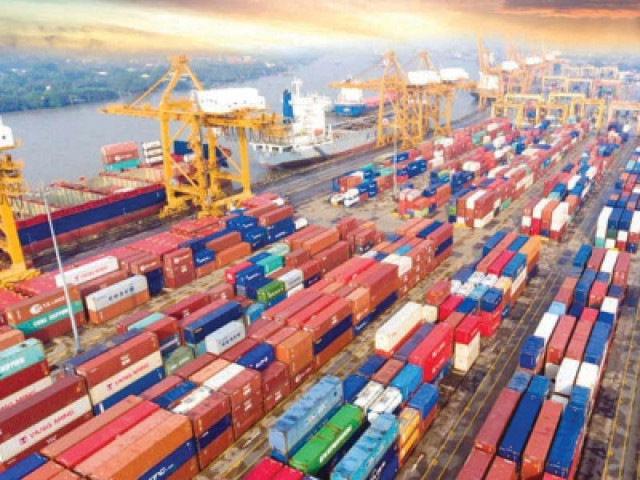High import duties start to reflect in drug shortages
Tax removal on 61 items including medicines and masks needed to avoid a severe healthcare crisis amid 6th wave

The past few weeks, which have seen rising coronavirus cases in parts of Pakistan, have been a reminder for the country that its battle with the pandemic is yet far from over. The government, however, met with a severe economic crisis and depleting foreign reserves, thinks that this may be the perfect time to bring back import duties on various items used for coronavirus treatment and protection, which had been declared tax-free by the previous government. Owing to which, Pakistan is currently battling a national shortage of drugs including various antipyretics, antihistamines, antibiotics and respiratory agents, in addition to equipment such as nebulisers, face masks and gloves, used by coronavirus patients and caregivers, leaving hundreds of people on tenterhooks amid a possible sixth wave of the infection.
The shortage of items has been confirmed by Wholesale Chemists Association President Muhammad Atif, who particularly mentioned the drug Panadol, saying that it is likely to disappear from the local markets as the sixth wave matures. “A packet of Panadol consisting of 100 tablets is being sold in Karachi's black markets for Rs425 at the moment. Similarly, Panadol CF, an anti-allergy medicine, is also becoming hard to find. Other than that, common cough syrups, drugs used in tuberculosis treatment, as well as vitamin C supplements that are prescribed to patients recovering from Covid-19, are also disappearing from the market owing to the heavy taxes imposed on them,” he elaborated.
Speaking in the regard, Peshawar Drug Association President Arshad Momand has also highlighted the drug shortage in his region. Per his account, the difference in supply and demand of coronavirus-related medicines has triggered a stock-piling situation, where many pharmacies in Peshawar have allegedly started stocking up on drugs and raising market prices, which is adding to the existing crisis. “Currently, there is no check and balance in this regard and profiteers are trying to make the most of this brimming crisis. There is widespread shortage of Panadol and face-masks in Peshawar's open market, much of which is the doing of local hoarders right under the nose of the region's drug inspectors," he informed this reporter.
Reports of a similar situation have also been coming from Lahore, where gaps in supply of raw materials have affected the production of local pharmaceutical companies. Owing to which, the city is facing a burgeoning drug availability crisis, while pharmacies have also started raising drug prices citing major gaps in supply and demand. A survey of local drug stores reveals that like Karachi and Peshawar, Lahore is also currently short on Panadol, a popular antipyretic drug, in addition to medicines used to regulate blood pressure, treat diabetes, effects of hepatitis and soothe heartburn. "There are some 40 drugs that are short in not just Lahore, but various cities across Punjab due to the surge in federal taxes. In addition to that, the depreciation of the rupee against the dollar and local inflation has also discouraged pharmaceutical companies from importing raw materials that are also subject to higher import levies now. The cumulative burden of this has fallen on the people of Punjab, who are struggling to find life-saving drugs amid a sixth spell of the coronavirus," commented a Lahore pharmacy owner on condition of anonymity.
According to details, during the first wave of the novel coronavirus, the Imran Khan government had waived off duty on import of 61 items needed for coronavirus prevention and treatment including disposable items such as masks, gloves and nebulising machines. The former government had also issued an SRO stating that all the equipment used for Covid-19 treatment would be kept duty free till the year 2021. Subsequently, in January 2022, the SRO was withdrawn and duty was re-imposed on the 61 items. Resultantly, the import of such items was also affected and products have now gradually stopped coming in from neighbouring China, which had been one of the biggest suppliers of items related to coronavirus treatment and care. For instance, in 2021, during the first wave of the pandemic in the country, Pakistan had to order over 50 million masks to meet the local PPE demand. However, at present, with imports affected and a viral surge on the horizon, the country is once again on the brink of a face mask crisis, which could potentially catalyse the spread of the virus.
Healthcare Association of Pakistan’s Executive Committee Member Muhammad Hanif Soomro, has lamented the withdrawal of SRO of January 2022. The current government, he says, has imposed a jaw-dropping 80 per cent duty on masks, 60 per cent on gloves and 30 per cent on nebulising machines. He remained of the opinion that the duty on masks and other items related to Covid-19 should be abolished immediately, while the SRO should be re-issued to make these essential items duty free. “Covid-19 is on the rise again, and these 61 items will be more than a necessity soon, so the government should act before it’s too late and there is widespread panic,” he told The Express Tribune.
Additional reporting credits: Wisal Yousafzai, Muhammad Ilyas



















COMMENTS
Comments are moderated and generally will be posted if they are on-topic and not abusive.
For more information, please see our Comments FAQ